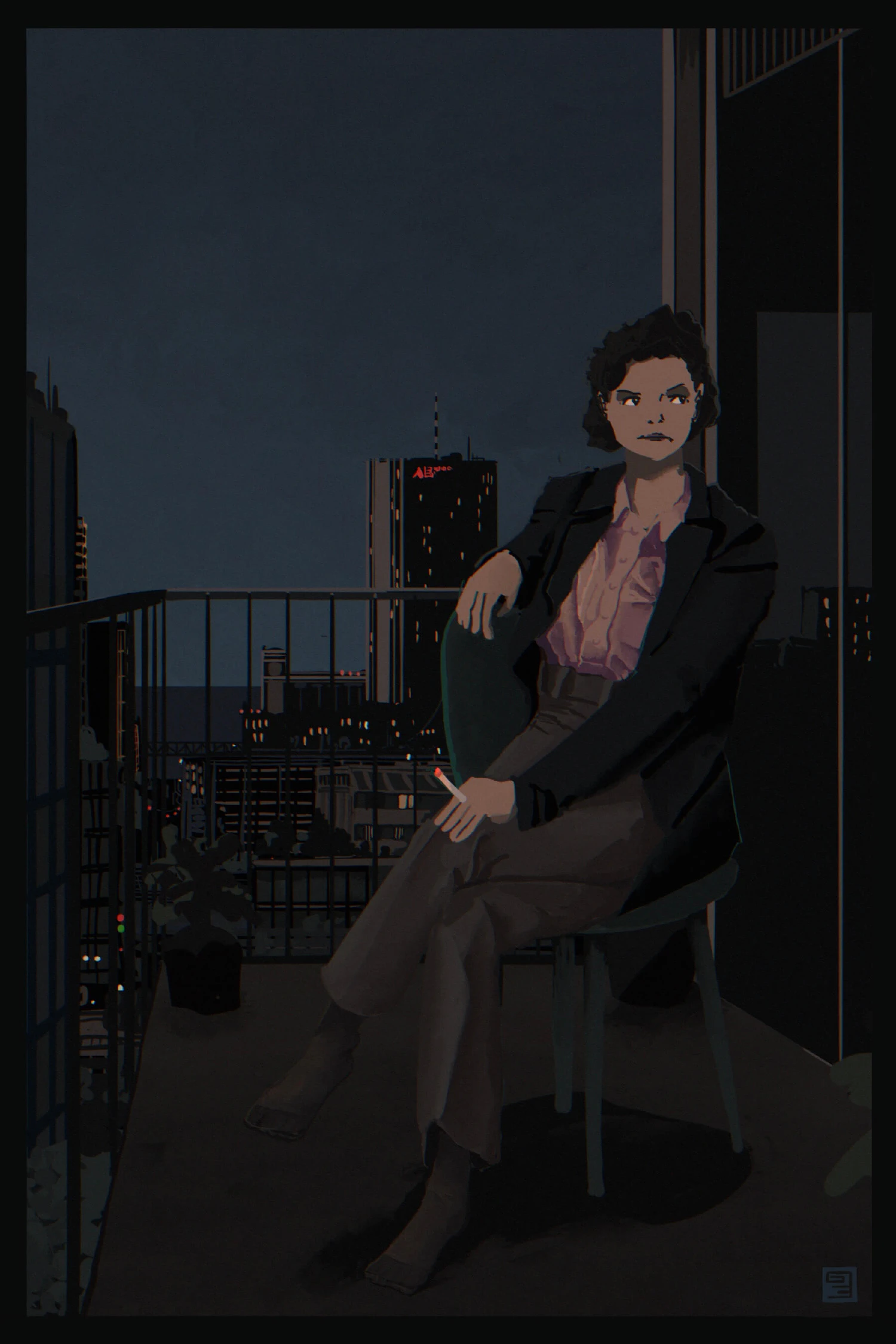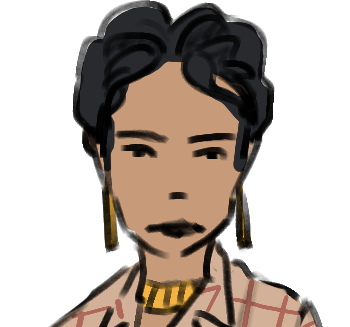NEW Story: Sunday Morning
Generations

Ayn was a naturally busy person. She worked long, hard hours at the Americas Bureau at National Intelligence, or ‘AB/NI,’ as a clerk, or specialist, or whatever they needed her to be that day. Her days off were filled with petty occupations and minor obligations — mostly tending to her plants and cleaning. She enjoyed number puzzles. A couple friends had formed a book club, and she went to that on occasion.
Tzipora’s arrival in June of 2063 saw several disruptions to Ayn’s routines, not least of which was the surfacing of her old unsentimental boyfriend, now ten years older and much different. Tzipora herself emerged into Ayn’s personal life, and they became close — much like it was with Baron, Tzipora was both a daughter and a friend.
It had been Ayn’s recommendation, actually, that Baron should take her.
“At least for a while,” she said, “She talks about you all the time. No one’s talking about adoption — just take her until the system can sort her out. That’s my advice.”
Tzipora met Ayn’s parents later that year, and just like that, Tzipora had forged herself a new family through her force of will and good charm — Baron, the father; Ayn, the mother; and her Hong-Konger/Russian parents. And Ayn’s parents adored her; they showered Tzipora with gifts and baked goods. She was the grandchild they’d wanted so much.
The whole situation aroused an ongoing memory, foggy through shame and discomfort, about her ageing parents and her unmarried lifestyle. It was very difficult for Ayn to discuss her decision not to have children with her parents. She was an only child. How do you tell your parents their ancestors, their bloodline ends with you? It hurt them a lot. It hurt Ayn too, to make that choice and follow her heart.
Ayn lived in the same studio apartment in the Great Coast she had for a decade, though she now owned it from her work. As a childless, unmarried woman it was very difficult to find larger homes, which were usually allocated to couples and families. Real estate in Vekllei was both a reward and a punishment, and informed the social fabric of the country.
Tzipora was good at being a grandchild when she needed to be, and Ayn was very thankful for her presence in their lives. Ayn loved her parents, and found herself thinking back to her own childhood more and more as they grew older. She was still their baby, and it was sometimes difficult to reconcile her own independence as an adult with her desire to make them happy. That desire — the instinct to please — dated back to being a little girl, dumb and full of wonder, navigating her childhood with her mum and dad, much younger then, always loving.
After work, she would sometimes sit and smoke, then put it out and smell the salt on the breeze. She used to come out here to think, often melancholic about her life and decisions. Nowadays, the thoughts were lighter, more straightforward. She was more self-assured. Sometimes, Tzipora sat out there with her.
